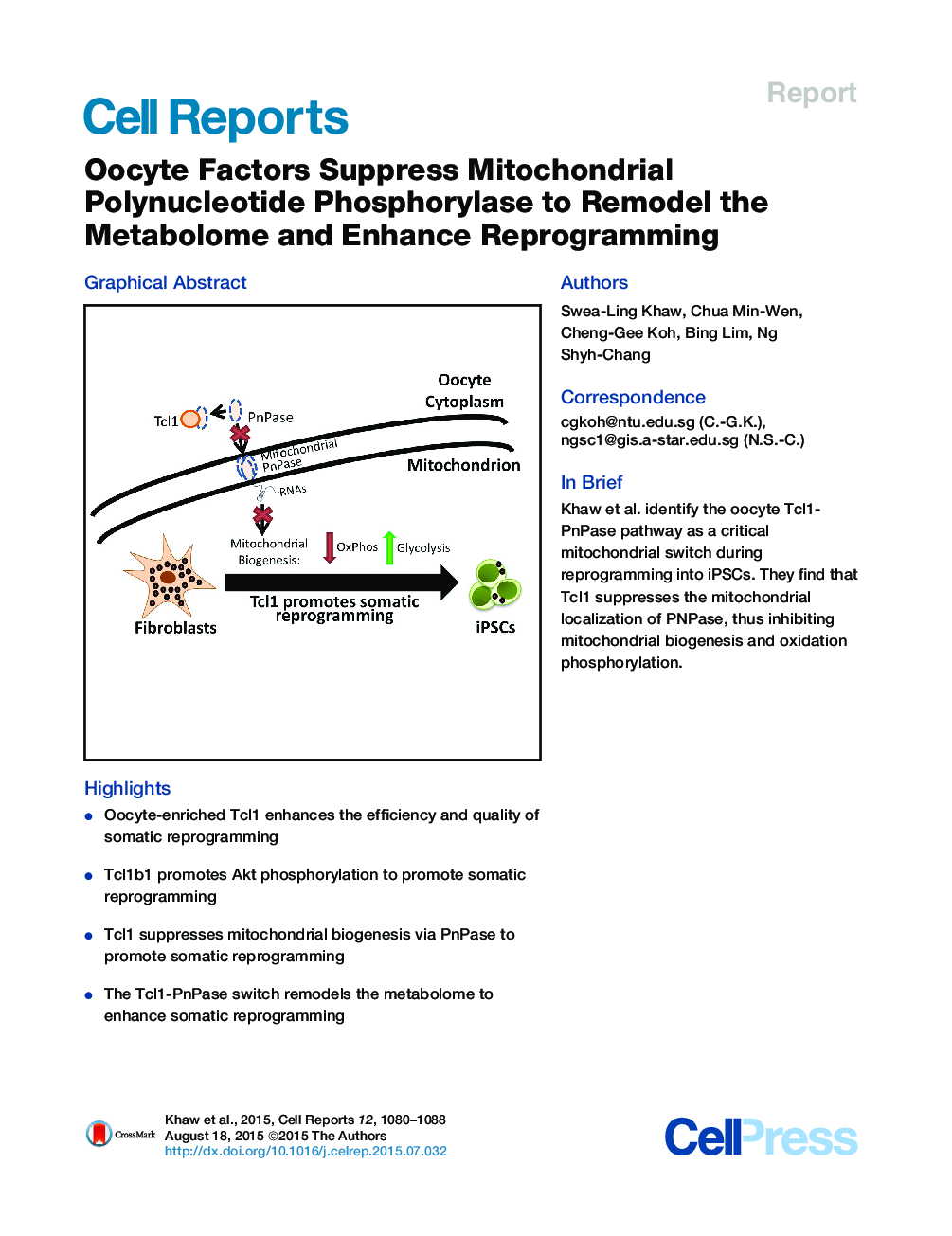| Article ID | Journal | Published Year | Pages | File Type |
|---|---|---|---|---|
| 2039328 | Cell Reports | 2015 | 9 Pages |
•Oocyte-enriched Tcl1 enhances the efficiency and quality of somatic reprogramming•Tcl1b1 promotes Akt phosphorylation to promote somatic reprogramming•Tcl1 suppresses mitochondrial biogenesis via PnPase to promote somatic reprogramming•The Tcl1-PnPase switch remodels the metabolome to enhance somatic reprogramming
SummaryOocyte factors not only drive somatic cell nuclear transfer reprogramming but also augment the efficiency and quality of induced pluripotent stem cell (iPSC) reprogramming. Here, we show that the oocyte-enriched factors Tcl1 and Tcl1b1 significantly enhance reprogramming efficiency. Clonal analysis of pluripotency biomarkers further show that the Tcl1 oocyte factors improve the quality of reprogramming. Mechanistically, we find that the enhancement effect of Tcl1b1 depends on Akt, one of its putative targets. In contrast, Tcl1 suppresses the mitochondrial polynucleotide phosphorylase (PnPase) to promote reprogramming. Knockdown of PnPase rescues the inhibitory effect from Tcl1 knockdown during reprogramming, whereas PnPase overexpression abrogates the enhancement from Tcl1 overexpression. We further demonstrate that Tcl1 suppresses PnPase’s mitochondrial localization to inhibit mitochondrial biogenesis and oxidation phosphorylation, thus remodeling the metabolome. Hence, we identified the Tcl1-PnPase pathway as a critical mitochondrial switch during reprogramming.
Graphical AbstractFigure optionsDownload full-size imageDownload as PowerPoint slide
